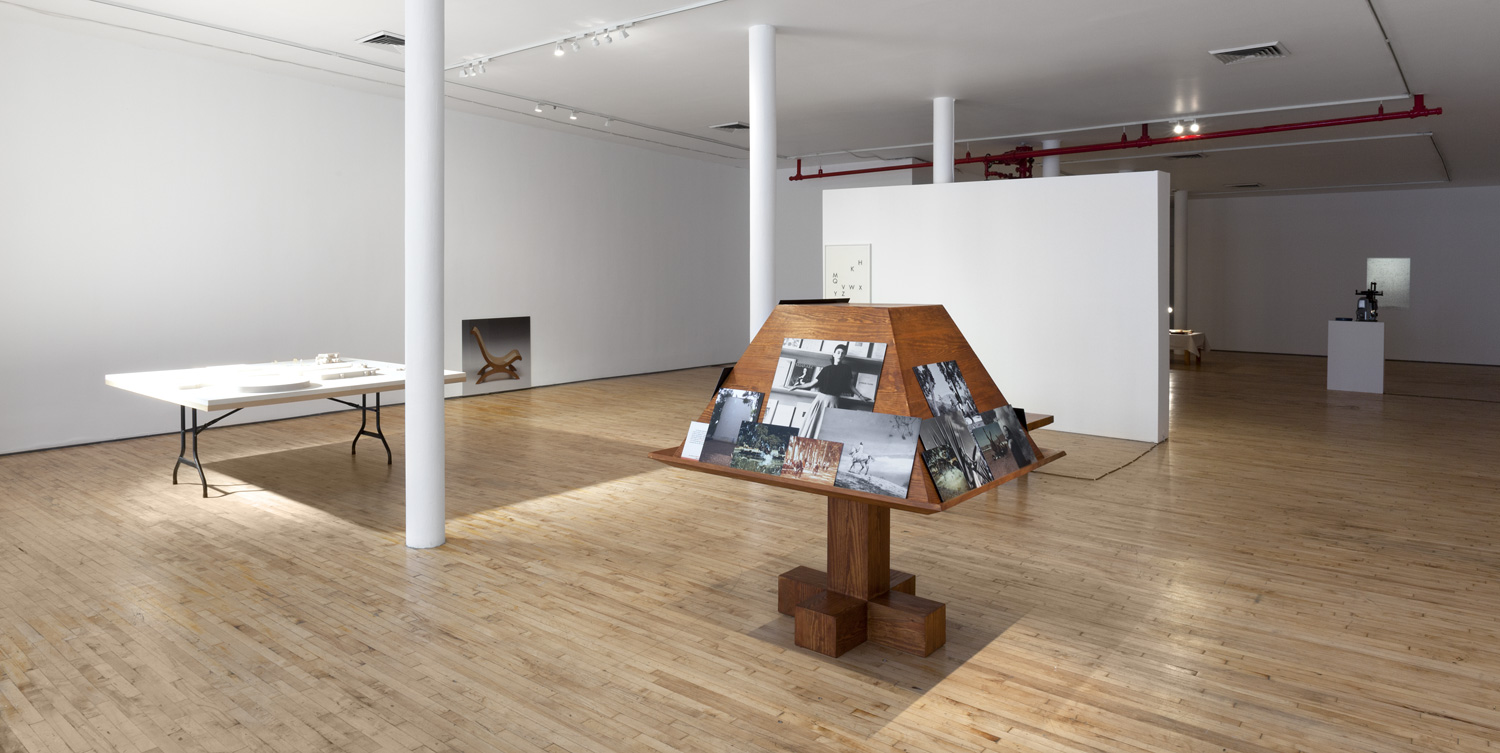Jill Magid, Woman With Sombrero, 2013. Installation view at Art in General. Image courtesy the artist and Art in General. Photography by Steven Probert.
Tuesday, February 18, 2014, 6:30–8:30 pm
The New School, Alvin Johnson/
J.M. Kaplan Building
66 West 12th Street, Room 510
New York City
Free Admission
www.veralistcenter.org
At a time when global exchanges are de rigueur, the Vera List Center for Art and Politics at The New School, in collaboration with The Art & Law Program, presents a conversation on intellectual property, local culture, and international commerce between Vera List Center fellow Jill Magid and artist and art lawyer Sergio Muñoz Sarmiento, facilitated by VLC director Carin Kuoni.
The conversation is anchored by artist Jill Magid’s current project, The Barragán Archives, a long-term multimedia examination of the legacy of Luis Barragán (1902–1988), one of Mexico’s most influential architects and only the second winner of the prestigious Pritzker Prize (1980)—often labeled the “Nobel of Architecture.” Along with the vast majority of his architecture, Barragán’s personal archive remains in Mexico while his professional archive, including the rights to his name and work, was acquired in 1995 by Swiss furniture company Vitra, under the auspices of the newly founded Barragan Foundation. In the distance alone between archive and work arises the potential for conflict.
Framed by a discussion of the relationship between art, law, and cultural property, Magid and Muñoz Sarmiento examine the repercussions of the privatization of an artist’s (or architect’s) life work. Does private ownership, often softened by well-funded infrastructures, facilitate public access to an artist’s work or, conversely, does it restrict access? What are the legal “fictions” and cultural stories—such as Magid’s project—facilitated by such proprietary structures, and what significance and impact do they have in regards to the physical objects? Can personal and private interests align with commercial and legal agendas in ways that are productive and beneficial to a general public?
Participants
Carin Kuoni, director/curator, Vera List Center
Jill Magid, artist and 2013–2015 Vera List Center Fellow
Sergio Muñoz Sarmiento, artist, founder of The Art Law Office
Jill Magid, a New-York based artist and writer, forms intimate relationships with systems of power, including police, military, secret service, corporations, and CCTV surveillance. For Magid, their power isn’t a remote condition to contest, but rather something to manipulate, by drawing it closer, exploiting its loopholes, engaging it in dialogue, infiltrating its structure, repeating its logic. With solo exhibitions at institutions around the world including Tate Modern, London; Whitney Museum of American Art, New York; Berkeley Museum of Art, California; Tate Liverpool; the Stedelijk Museum Bureau Amsterdam; Yvon Lambert, Paris and New York; Gagosian Gallery, New York; The Centre D’Arte Santa Monica, Barcelona, and at the Security and Intelligence Agency of the Netherlands, Magid has been recognized with awards such as the Basis Stipendium from Fonds Voor Beeldende Kunsten in the Netherlands and the Netherland-American Foundation Fellowship Fulbright Grant. Magid has participated in the Liverpool, Bucharest, Singapore, Incheon, and Gothenburg Biennials. She is also the author of four books including Becoming Tarden, a non-fiction novel which opens with the phrase “the secret itself is much more beautiful than its revelation.” Magid holds a BFA from Cornell University and a Masters of Science from the Massachusetts Institute of Technology. She is an adjunct professor at Cooper Union and a 2013-2015 Vera List Center Fellow. www.jillmagid.net
Sergio Muñoz Sarmiento advises visual and performing artists, private foundations, public charities, and nonprofit arts organizations on matters involving intellectual property, contracts, public art commissions, authentication disputes, moral rights, free speech, and artist-gallery disputes. He worked on behalf of the Swiss installation artist Christoph Büchel for his appeal during the highly-publicized dispute with the Massachusetts Museum of Contemporary Art, and co-wrote amicus briefs for the Seventh Circuit Court of Appeals and the United States Supreme Court for the high-profile moral rights case Chapman Kelley vs. Chicago Park District, in support of artist Chapman Kelley. From 2006 to 2012, he was Director of Education and Associate Director for Volunteer Lawyers for the Arts in New York City, advising and representing visual and performing artists and arts organizations. Muñoz Sarmiento has over twelve years experience teaching art, critical theory, and law at the university level, and has had a contemporary art practice since 1994. He serves on the advisory boards of Denniston Hill Artists Residency, The Nietzsche Circle, and The Northern Manhattan Arts Alliance. In 2010, he founded The Art & Law Program, the first residency of its kind, as well as the Art Law School, a lecture series on legal issue for artists. He was a mentor with the Kennedy Center’s Arts in Crisis Program 2009–10 and served as a New York State Council on the Arts panelist 2008–10. He currently teaches at Fordham Law School. sergiomunozsarmiento.com
Presented by the Vera List Center for Art and Politics, in collaboration with The Art & Law Program, as part of the Vera List Center’s curatorial focus theme Alignment.

